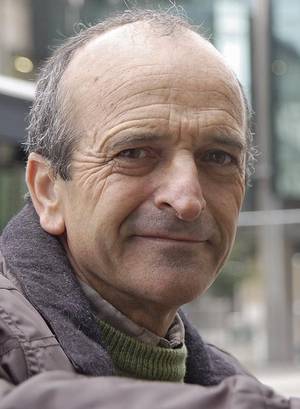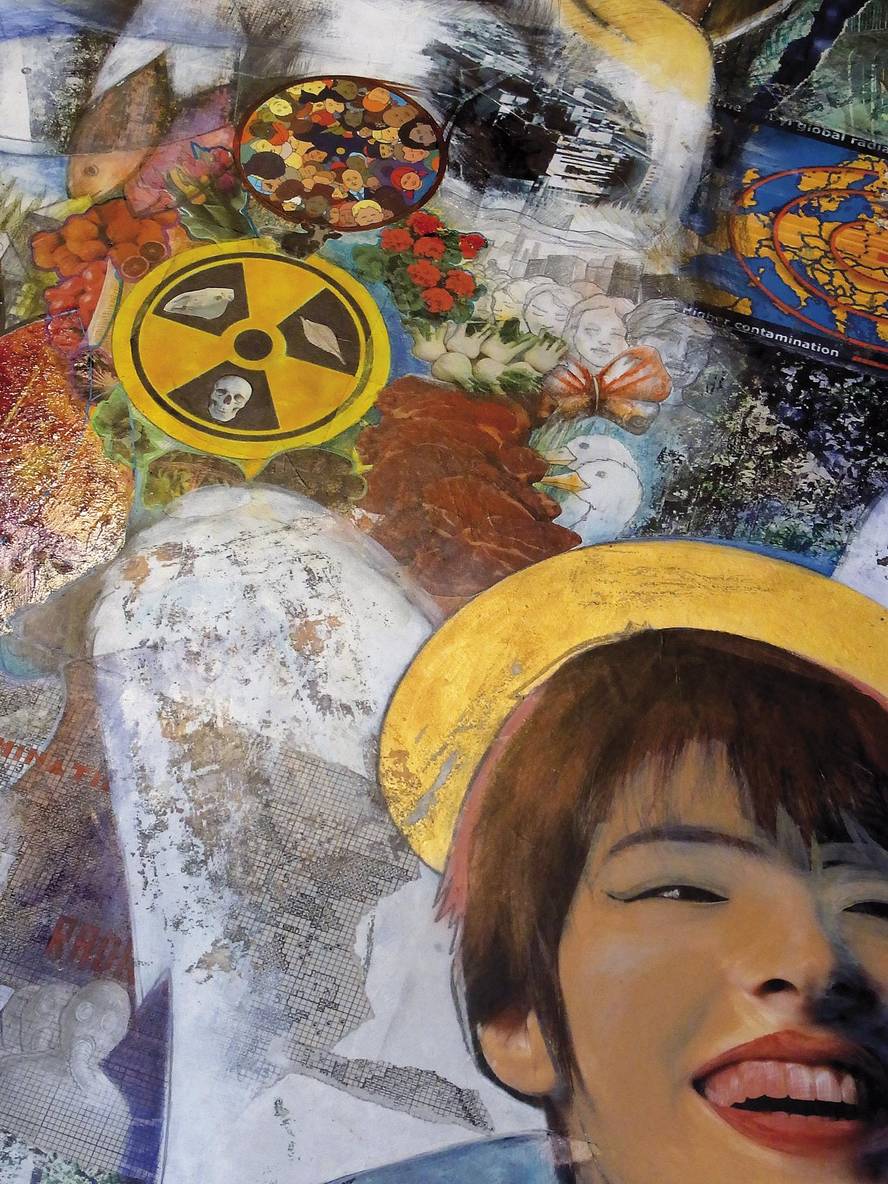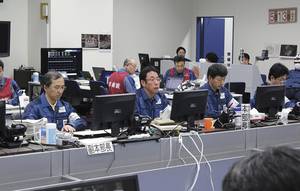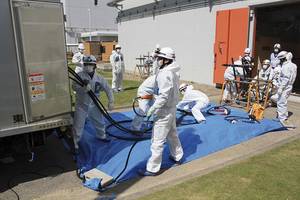Lesson of Fukushima
Matthew Bunn and Olli Heinonen are among those who think and learn the lesson of Fukushima. They are the authors of an analysis published in the journal Science last September, which was significantly titled:Preventing the next Fukushima.
Bunn Harvard is a researcher at the University's Belfer Center for Science and International Affairs and Heinon is currently an honorary member of the same center, but was director of the security controls series of the International Atomic Energy Agency IAEA until 2010. Both agree that the weakness of the authorities and the certain voluntarism of the regulations limit the impact that international organizations can have on nuclear security.
Moreover, as they have explained in the analysis, so far the institutions have relied on "each country" the responsibility to establish and control compliance with security regulations, and although after Fukushima they have shown their intention to unify regulations, they have not undergone major changes.
In the long term, the plants to be implemented are expected to be safer than the current ones, since they must be designed with stricter measures. However, in the coming decades, most of the nuclear energy will be generated by the plants currently in operation, that is, those that have an "old design". Considering this, the analysis proposed six measures to improve the safety of these plants.
First, they consider it necessary to establish stricter safety standards. In this sense, the stress tests prescribed by the European Union have been expressly mentioned. The objective of these tests is to check whether the safety standards established in the 143 central European Union are suitable to face similar phenomena to those of Fukushima and ensure citizen security.
In fact, the leaders of the European Union have recognized that in the communication of stress tests a lesson has emerged from that disaster. In their words, "one of the main subjects that can be extracted is the possibility of extreme situations, such as two natural disasters coming at the same time and can totally damage the electricity supply."
Thus, the stress tests have considered two types of phenomena: natural (earthquakes, floods, snowfall, frost, storms...), human failures (plane crash or explosion near a power plant) and actions (for example, terrorist attacks).
The countries of the European Union had a period until December 2011 for the realization of the stress tests, but even before the deadline ended, those responsible concluded that each country has its own safety standards and there is a big difference between each other, for example, in the conditions that must meet the earthquake control plants.
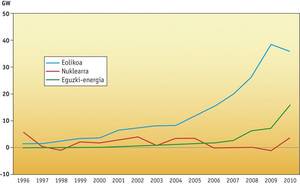
Therefore, European Union officials have ratified in part what Bunn and Heinonen have denounced in the analysis that the regulations are not harmonized. And as in stress tests, the analysis has also taken into account the risk of attacks against plants. Thus, they have proposed hardening measures to "protect themselves from terrorist sabotage."
They also call for steps to improve the training of plant staff so they know how to react to unforeseen events (earthquakes, floods). According to the authors of the analysis, if the Fukushima workers were willing to take certain measures, there would not be so much radiation emission to the air and to the sea.
Other proposals are directly institutional. Among other things, the authors have reported that when Fukushima occurred, the EEA response was "too weak" and reacted "too late." In this regard, the World Health Organization's response capacity to health emergencies has been considered exemplary. In addition, they have claimed the strengthening of international laws and the strengthening of cooperation between countries.
Once all the proposals have been made, they have explained what lessons they have taken from Fukushima: "The main lesson of Fukushima is the mistake of considering those who are hardly discriminatory." At the end of the analysis, it has been clearly indicated who should be responsible for sharpening preventive measures and ensuring safety. Responsibility attributed to the EEA.
Possibility of paradigm shift
In the same month of its publication, another author mentioned the same lesson in an article published in the bulletin of atomic scientists. Fukushima crisis: Can Japan be at the forefront of an authentic paradigme shift? The article is titled (Fukushima crisis: Is Japan at the forefront of a real paradigm shift? ), and its author is Mycle Schneider, an independent energy advisor.
Schneider has advised energy ministers from Belgium, France and Germany, as well as IAEA and nuclear safety organizations from the United States and the European Union, among others. He is also one of the authors of the World Nuclear Industry Status Report 2010-2011.
Mycle Schneider uses an equation to explain the lesson. According to this equation, "the result of a very high potential risk for a very low probability of accident is an acceptable risk." However, Schneider considers the equation to be incorrect.
He then summed up the evolution of the crisis from March to September (the reading is quite pessimistic) and has finally reached a conclusion. The Fukushima crisis is an opportunity to change energy policy. In his opinion, what happened in Fukushima has only made the situation of the nuclear industry worse.
Thus, Schneider has given some data to show that the industry was losing strength lately and believes that the decline has accelerated afterwards. It is therefore a "good time" for change and not only in Japan. Moreover, he sees Japan and Germany at the forefront of change.
To do this, Schneider is committed to renewable energy, although it recognizes that to impose on renewables it must solve at least four problems: capacity to provide energy services, efficiency, decentralization and horizontal and flexible distribution networks. However, Schneider has championed change.
Nuclear industry in narrow port
The latest World Nuclear Industry Status Report 2010-2011 suggests that Schneider's change has already begun to materialize.
According to the data collected in the report, the nuclear industry is weakening, for example, in the European Union there were 143 reactors in operation in 2011 and have never been so few, since in 1989 was the largest number of reactors, with 177. Globally, the trend is the same: In April 2011, 437 reactors were in operation, seven fewer than in 2002.
Meanwhile, renewable energy sources are growing the most. Thus, in 2010, installed capacity in wind power plants, small hydroelectric plants and biomass and waste recovery plants (381 GW of the total) exceeded for the first time the most nuclear (375 GW).
In addition, the money invested in clean energy technologies has increased by 30% in 2010. China is a leader and followed by Germany and the United States (China invested 41.8 billion euros in 2010, 39% more than in 2009, Germany 31.6 billion, 100% more than the previous year and 26 billion more than in 2009). And they believe that the Fukushima disaster will strengthen the trend, both those who have prepared the report and many other experts.
However, not everyone agrees with this subject. In December last year, EEA director Yukuya Amano made a statement acknowledging that the "accident could cause a slowdown in the growth of the nuclear industry" in Fukushima, stating that by 2030 a minimum of 90 reactors is expected more than now.
This forecast was based on increased energy demand, concern for climate change, the price of fossil fuels and the security of energy supply. Moreover, according to the director of the EEA, "it will be impossible to reduce greenhouse gas emissions" in the event of a renunciation of nuclear energy.
Despite this, one of the largest nuclear companies in the world, French Areva, has had to reduce its investment plans by 34% for the period 2012-2016, and is making great efforts to avoid economic losses. According to experts, Areva's decline is mainly due to the economic crisis and the loss of protection of nuclear energy supporters.
The Hardest Lesson for the Japanese
In any case, the hardest lesson has been received by Japanese society. Almost a year after the earthquake and tsunami, 80,000 citizens remain outside their homes and workplaces, due to radiation pollution in the area where their homes and workplaces lived, and even more citizens have had to change their living habits so as not to endanger their health.
Information on the state of the Daiichi plant and the restoration work of the contaminated area has been repeatedly denounced by experts. An editorial published in December by the journal Nature demonstrates its distrust of official Japanese sources.
The editorial also calls for the creation of an advisory committee of independent scientists, since the organizations that have the most influence on the decisions adopted by the Government (Agency for Nuclear and Industrial Security of the Ministry of Industry and Nuclear Security Commission) have interests in the nuclear industry. The last words of the editorial are: "Japan can do better. People in Japan deserve better."
At the same time that this editorial was published, the Japanese government made an official statement announcing the consolidation of three reactors at the Daiichi Fukushima plant. In particular, he explained that the cold shutdown entered a so-called situation and ended the "accident phase" with it.
This is because, under normal conditions, such an existing reactor is under atmospheric pressure and below 100ºC, so there is no risk of heating and fission reaction to start your box. This under normal conditions. However, the situation of Daiichi's reactors was very different. Therefore, although the Japanese government statement suggested otherwise, experts warned that the coldness in this case did not mean that the reactors were stable and could be maintained at all.
On the other hand, the Japanese government recalled in its statement the workers who worked in the first moment and in the future, and recognized that there is still much to be done with the following words: "The war is not over." They seem to have at least learned that lesson.

